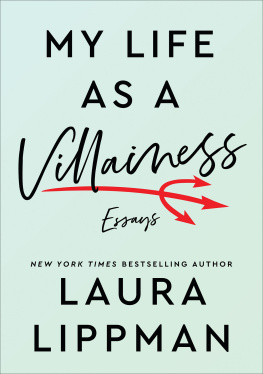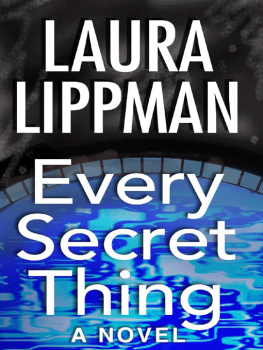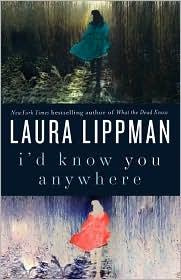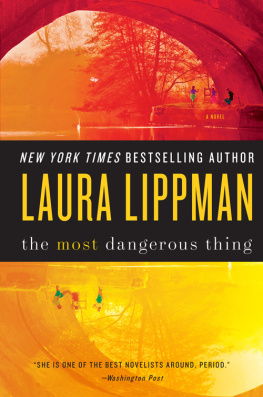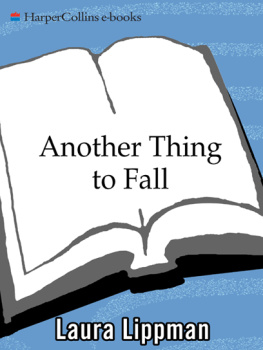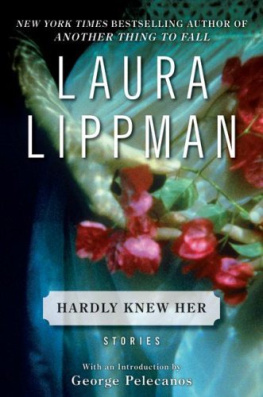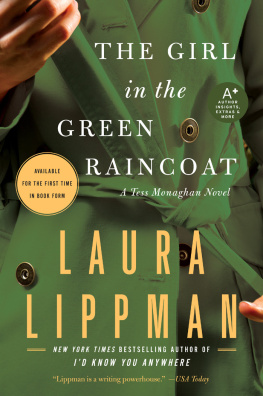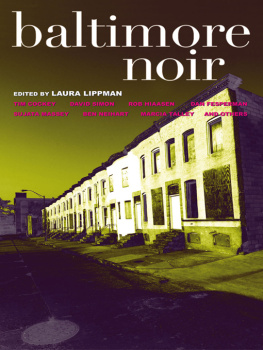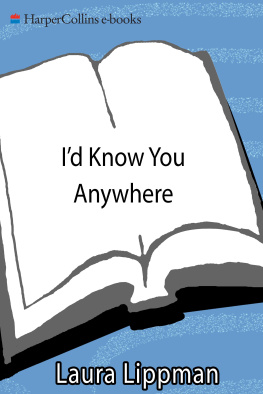Laura Lippman - My Life as a Villainess
Here you can read online Laura Lippman - My Life as a Villainess full text of the book (entire story) in english for free. Download pdf and epub, get meaning, cover and reviews about this ebook. year: 2020, publisher: HarperCollins, genre: Detective and thriller. Description of the work, (preface) as well as reviews are available. Best literature library LitArk.com created for fans of good reading and offers a wide selection of genres:
Romance novel
Science fiction
Adventure
Detective
Science
History
Home and family
Prose
Art
Politics
Computer
Non-fiction
Religion
Business
Children
Humor
Choose a favorite category and find really read worthwhile books. Enjoy immersion in the world of imagination, feel the emotions of the characters or learn something new for yourself, make an fascinating discovery.
- Book:My Life as a Villainess
- Author:
- Publisher:HarperCollins
- Genre:
- Year:2020
- Rating:4 / 5
- Favourites:Add to favourites
- Your mark:
- 80
- 1
- 2
- 3
- 4
- 5
My Life as a Villainess: summary, description and annotation
We offer to read an annotation, description, summary or preface (depends on what the author of the book "My Life as a Villainess" wrote himself). If you haven't found the necessary information about the book — write in the comments, we will try to find it.
My Life as a Villainess — read online for free the complete book (whole text) full work
Below is the text of the book, divided by pages. System saving the place of the last page read, allows you to conveniently read the book "My Life as a Villainess" online for free, without having to search again every time where you left off. Put a bookmark, and you can go to the page where you finished reading at any time.
Font size:
Interval:
Bookmark:
For the Grotto
Well, shes not shy.
Madeline Lippman, numerous times
The Accidental Essayist
Paradox: How does one write about ones distaste for the first-person pronoun without using it? Especially in the introduction to a collection of personal essays?
I give up.
I started my writing life as a newspaper reporter. I am immensely proud of the fact that I supported myself through my writing from the day I left college, more or less. (During the first six months at my first newspaper job, I also worked lunch shifts at the finest Italian restaurant in Waco, Texas.) As a young reporter, I couldnt wait to get my hands on that big shiny I. But that personal pronoun was the prerogative of columnists, seasoned and proven stylists with distinctive points of view. One had to pay ones dues to write in the first person. I spent twenty years as a reporter, working at four newspapers, and while I slipped a little first-person in here and there, it became less and less desirable to me. Other peoples lives were so much more fascinating than mine.
But in 2017, I decided I wanted to challenge myself by writing for a larger variety of publications. And because I was pressed for time and couldnt afford to do the reporting necessary for long-form journalism, I had to mine my personal experiences and small areas of expertise. Initially, I wasnt ready to reveal much about myself, so I kept the canvas smalla piece about my enthusiasm for the writer Ruth McKenney, a confession about how I flew to Providence, Rhode Island, for lunch in order to retain A-list status on Southwest Airlines for another year.
Not long after my trip to Providence, I was alone one night as my daughter slept, with only Twitter to keep me company. A subscriber to LongreadsIm a big believer in paying for contentI stumbled on its section devoted to aging, Fine Lines. It was edited by Sari Botton and because we followed each other on Twitter, I could slide into her DMs, as you kids say, and beg for a chance to write for her. This was tacky and inappropriate, but it worked. She said she would take a piece from me about my status as the Oldest Mom in my peer group.
Five months later, just before Mothers Day, Longreads published my piece, Game of Crones, and while it didnt go viral, it was immensely popular, quickly stacking up tens of thousands of reads. But the oddest thing was how many women seemed to identify with my description of life as a very old, very unusual working mother. I had thought my experiences were so bizarre that they would function as amusement for normal people. Instead, I was reminded that the more specific one is about ones life, the more universal it can seem. I was asked to write more personal essays.
The result is this book, My Life as a Villainess. The title is meant to be arch and, I hope, entirely past-tense. I try to be a good person most days, but it does require some effort on my part. Some people think Im hard on myself in these pages, but I feel that Im just gleefully honest. In dreams begin responsibilities and I never lose sight of the fact that my dreams have come true. When the William Hurt character asks the Albert Brooks character in Broadcast News what to do when reality outstrips ones fantasies, the advice is: Keep it to yourself. But I just cant.
There is a sense of liberation in admitting to ones faults. I do struggle with being a good friend. If grudge-holding counted for cardio, Id have run the equivalent of many Boston marathons by now. To me, the joke of this book is how hard I had to stretch to earn the title. Good girl is my factory default setting and I had to look hard for evidence of my villainy. It was much easier to talk about aging, my beloved parents, and the various types of geniuses Ive been lucky to know.
So when I call myself a beta, a jerk, or worse, its not self-deprecation; I have spent much of my adult life learning to eschew self-deprecation and encourage other women to do the same. Conversely, when I say nice things about myself, I recognize thats a subversive act for anyone in our humblebrag culture, but especially a middle-aged woman. I do not feel bad about my neck or any other parts of me that are simply succumbing to age. I consider myself a helpful and supportive mentor to many younger writers. And I sincerely believe that the MacArthur Foundation should give me one of its annual grants if only because its not good for a household with two creative people to have one officially designated as a genius when the other is not.
Does a collection of fifteen essays constitute a memoir? Not in this case. There is no mention of my sister, whom I adore, and this omission should thrill her, as she once asked me to promisein writingnever to produce a memoir. Large swaths of my life are missingmy idyllic childhood in a Brigadoon-like Baltimore neighborhood, Harand Camp of the Theatre Arts, my two-plus decades as a crime novelist, my foodie inclinations, my affection for visionary art, even a couple of near-death experiences. (Falling through the ice while skating, getting into a car driven by a friend zonked on quaaludes and then walking away from the inevitable accident, which has to be the most 1980 story ever.)
Is the whole greater than the parts? I think so. I hope so. This is a book about a deeply wonderful life, to quote Laurie Colwin, one of many writers name-checked in these essays. I first started fantasizing about being a novelist when I was twelve and it is everything I hoped forand more. Again, in dreams begin responsibilities, and as I thunder down the stretch toward official old age, I find I have the confidence and self-esteem to tell the worst stories I know about myself.
The question that hovers over anyone who dares to write personal essays, especially a woman, is, Who the hell do you think you are? Before you can answer, you will be told who and what you are not. You are not Nora Ephron. You are not Joan Didion. You are not Susan Sontag. You arent all that interesting. The list goes on and on; the question is always rhetorical.
I will answer the question anyway. I am: a mother, wife, daughter, sister. I am a writer. I am a person with six decades of life experience under my belt. I am a patriot. I am in therapy. I am silly. I am serious. I am an insomniac. I am a Howard Stern superfan. Im a grudge-holder. I am a friend, although not a good one. I can be a real asshole. Finally, to steal from my beloved James M. Cain, who once ended a books introduction with these very words: I am a registered Democrat. I drink.
Laura Lippman
Baltimore, MD
December 2019
Game of Crones
I grow old, I grow old, I shall wear my trousers rolled... and from Chicos.
When I was in high school, I would walk to the Waldenbooks in the mall near my home and read novels while standing up. This was the 1970s, long before bookstores became places that encouraged people to sit, hang, browse. There were no armchairs in that narrow store on the second floor of the Mall in Columbia in Howard County, Maryland.
Reading while standing up felt like stealing, a pathetic thrill for this straight-A goody-goody. I had moneyI babysat, I eventually worked at the Swiss Colony in the same mall. I could buy any volume I truly desired. But my stand-up reads were books too embarrassing to bring home. I remember only two.
One was TheGreengage Summer by Rumer Godden, a British novelist perhaps best known today for inspiring the name of Bruce Williss and Demi Moores oldest daughter. It now strikes me as a perfectly respectable book; I could have forked over $1.25 for it.
The other one wasI couldnt begin to tell you the title. It was a slick psycho serial killer tale that began with a young couple parked on Lovers Lane, where they were attacked by a man with, if I recall correctly, a metal hook for one of his hands. He used his hook to slash the roof of the convertible, or maybe it was a knife, and as the metal blade (or the hook) pierced through the canvas, the beautiful, vain sorority girlit was implicit that she deserved to die if only for her smugnessthought:
Font size:
Interval:
Bookmark:
Similar books «My Life as a Villainess»
Look at similar books to My Life as a Villainess. We have selected literature similar in name and meaning in the hope of providing readers with more options to find new, interesting, not yet read works.
Discussion, reviews of the book My Life as a Villainess and just readers' own opinions. Leave your comments, write what you think about the work, its meaning or the main characters. Specify what exactly you liked and what you didn't like, and why you think so.

